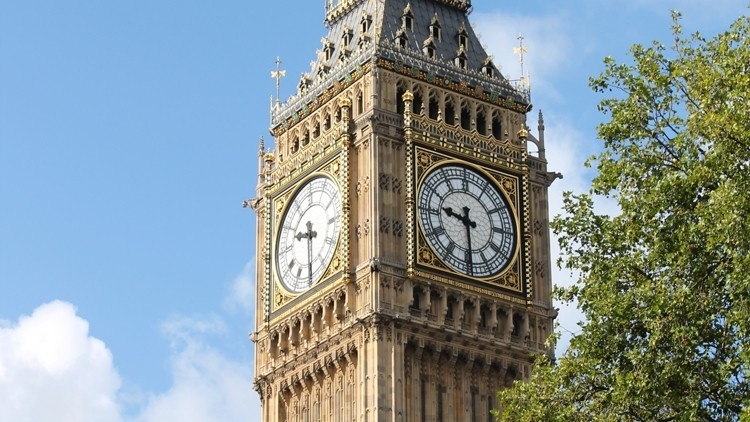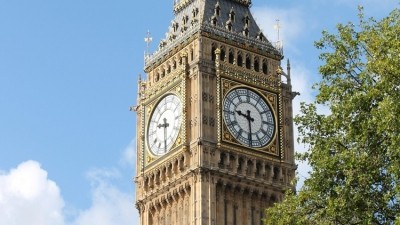Budget ‘falls short’ as Chancellor overlooks calls for further hospitality support

Jeremy Hunt delivered what he billed as his ‘Budget for growth’ this afternoon (15 March), during which he announced an extension of the Energy Price Guarantee for households; laid out substantial changes to childcare; and introduced a major set of reforms to support people back into work.
However, in a blow for hospitality, the Chancellor fell short of addressing some of the main challenges directly facing operators across the sector, with no additional support offered to tackle rising energy bills, business rates and inflation.
“With the continuing economic struggles facing SMEs, businesses were looking at today’s Budget to provide a lifeline. It fell short,” says Lionel Benjamin, co-founder of AGO Hotels.
‘Brexit Pubs Guarantee’
For hospitality, the most significant announcement came at the beginning of the Budget, with Hunt extending draught relief from 5% to 9.2%. This means that the duty on an average draught pint of beer served in a pub will not increase when the freeze on alcohol rates comes to an end at the beginning of August.
Describing it as a ‘Brexit Pubs Guarantee’ that would not have been possible inside the EU, the Chancellor said the measure would mean the duty on pints in pubs will be up to 11% lower than elsewhere, such as in the supermarket.
“British ale may be warm, but the duty on a pint is frozen,” the Chancellor said.
All other alcohol duties will rise with inflation from 1 August.
“This Budget was a make-or-break moment for pubs and brewers who have been running out of road for too long, and whilst the Chancellor’s efforts to support our pubs and breweries are welcome, we look forward to seeing how the ‘Brexit Pubs Guarantee’ will deliver for our sector,” says Emma McClarkin, chief executive of the British Beer and Pub Association.
“The cut to draught duty as part of the alcohol duty reform is positive and we hope that it will result in a boost for our pubs this summer.
“However, the fact is, our industry will be facing an overall tax hike not a reduction come August. Duty on non-draught beer will rise and the measures introduced today won’t rebalance the catastrophic impact soaring inflation and unfair energy contracts are having on both pubs and the breweries that supply them.”
‘Disappointment’ as corporation tax rises
As trailed in last year’s Autumn Statement, the Chancellor confirmed a rise in the main rate of corporation tax from 19% to 25%, which is set to come into effect from 1 April.
However, this was accompanied by the announcement of a new policy of ‘full expensing’, which will be introduced for the next three years with an aim to then make it permanent.
“It was disappointing that the Chancellor did not reverse next month’s corporation tax rise,” says Benjamin.
“With double-digit inflation and rising bills, this means further costs for businesses which we are trying not to pass onto the consumer, but it is becoming more difficult not to do so, and in the coming months we may see more businesses close their doors.”
‘Full expensing’ will run from 1 April 2023 until at least 31 March 2026 and cut tax for companies that want to invest in the UK, reducing their tax by up to 25p for every £1 they spend on IT equipment, plant or machinery.
Hunt described it as an effective cut to corporation tax of £9bn per year, adding that the Office for Budget Responsibility (OBR) said it will increase business investment by 3% for every year it is in place.
Elsewhere, the Chancellor also announced plans to create 12 ‘investment zones’ across the UK with areas including the West Midlands, Greater Manchester, Liverpool and Teesside identified as possible hosts.
Each investment zone will offer targeted and time limited tax cuts for businesses and liberalised planning rules to release more land for housing and commercial development. The Government has previously said it hopes that these zones will be hubs for growth, which will encourage investment in new shopping centres, restaurants, apartments and offices.
Tackling labour shortages
The cornerstone of the Chancellor’s Budget pertained to significant reforms to childcare and supporting people back into work.
They include 30 hours of free childcare for working parents in England expanded to cover one and two-year-olds; a new voluntary employment scheme for disabled people and those with health conditions called Universal Support; and a new ‘Returnerships’ apprenticeship targeted at the over 50s, which will refine existing skills programmes to make them more accessible to older workers.
Kate Nicholls, chief executive of UKHospitality, has welcomed the measures, saying they could help the sector overcome its ongoing challenges with recruitment.
“With hospitality businesses continuing to struggle with vacancies running at 56% higher than pre-pandemic levels, the measures announced today are significant in incentivising people back into work and hopefully alleviating crippling labour shortages,” she says.
“The significant reforms to childcare and the measures to help the over 50s re-enter the workforce are both areas on which UKHospitality has been calling for action and we’re pleased the Chancellor has recognised the help it can offer tackling the enormous vacancies in hospitality.”
Lack of further energy support leaves hospitality in ‘dire situation’
Perhaps most frustrating for the hospitality industry was the lack of any additional support to help businesses struggling with their energy bills.
“While the announcement on beer duties will enable operators to become more competitive against supermarkets and retailers, the current situation for the hospitality sector continues to be dire,” says Sacha Lord, night time economy advisor for Greater Manchester.
“In the face of rising bills, business rates and inflation, operators urgently need ongoing support and the Chancellor's announcements, or lack of them, will only further frustrate and anger the industry.
“By its very nature, hospitality is an industry with higher-than-average gas and electricity usage and is a sector that has seen incredible economic damage over the past three years. It is therefore disappointing that the Chancellor has not announced a delay to the planned decrease in business energy support or any sector-specific package for the industry.”
Wholesale gas and electricity prices are currently fixed for all non-domestic customers under the Government's Energy Bill Relief Scheme, which came into effect in October. However, from April this will be replaced by a scaled back Energy Bills Discount Scheme, which will see firms get a discount on wholesale prices rather than costs being capped.
UKHospitality has previously forecast that the tapering off of business energy support will add £4.5bn to bills, compared to the current scheme.
Lord is calling on the Government and Treasury to reconsider its level of support for the sector, in order to avoid what he warns will be a slew of unnecessary business closures and job losses.
“A third of businesses are already cutting trading days as a result of spiralling energy bills and today operators will be even more concerned over how they will continue to pay bills and wages,” he continues.
“Without energy support, a rise in insolvencies is inevitable as operators conclude the reality of running a business in hospitality is simply no longer financially viable.
“Sadly, it is the smaller, independent and often family-run businesses that are taking the brunt of the economic downturn, and who once again are at the precipice of closure.”





















